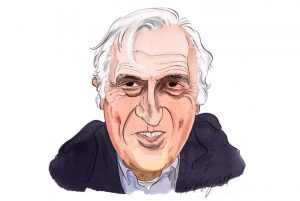 By Mary Wakefield, The Spectator
By Mary Wakefield, The Spectator
Some of the time, most of the time, it’s tricky to believe in God. There’s just too much that’s sad — and behind it all, the ceaseless chomping of predators. Then sometimes the mist lifts and just for a moment you can see why the saints insist that everything’s OK. There’s a documentary out now, Summer in the Forest, that for a while cleared the mist for me and made sense of faith.
It tells the stories of a group of men and women with learning disabilities who live alongside volunteers without disabilities in Trosly-Breuil, a small French village north of Paris. The community is called L’Arche — The Ark — and it was founded 53 years ago by a French-Canadian former naval officer, Jean Vanier. In his mid-thirties, Vanier visited an institution for ‘idiots’ and was struck by the great loneliness there. Where most of us would scuttle away guiltily, Jean Vanier made a decision in the autumn of 1964 that sent his life’s trajectory off at an odd angle.
****
According to the philosophy of L’Arche, men and women with learning disabilities — loving and guileless — teach us how to live. But, says Vanier, they have another lesson for us too — they also teach us the mystery of living with loss. This I find unnerving. What is the mystery of loss?
‘We all live with loss,’ said Vanier. ‘It’s inevitable. We begin, most of us, by being loved totally when we’re born — then we enter into a world of loss, a mystery of loss. Every time you lose a job, or something precious, or there’s death, there’s loss. We cannot live without this movement of loss and gain. But some people are so frightened of loss, they are just scared stiff of loss.’
He laughed. I didn’t. I thought of a life spent acquiring and keeping safe: a husband, the baby, a house, the great stream of packages from Amazon. The possibilities for loss give me vertigo.
‘You can’t escape it,’ said Jean Vanier, gently. ‘In the end, you even lose what you feel is yourself. We all do. There’s a beauty in that. There’s a beauty even in something like Alzheimer’s, because it is a cry. It’s not a disaster, it’s a cry for a one-to-one.’
But how can that be beautiful? Isn’t it just catastrophically sad?
‘We have to learn to cry,’ said Jean Vanier, ‘because we’ve created an identity of power and not an identity of relationships, and that’s what the whole film is about — an identity of relationships.’
To read Mary Wakefield’s entire essay in The Spectator, click HERE
